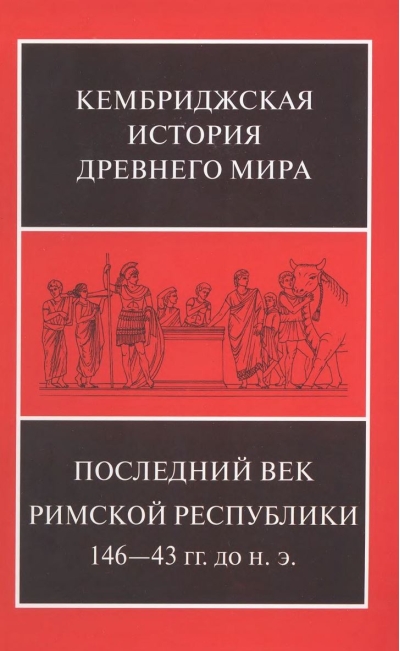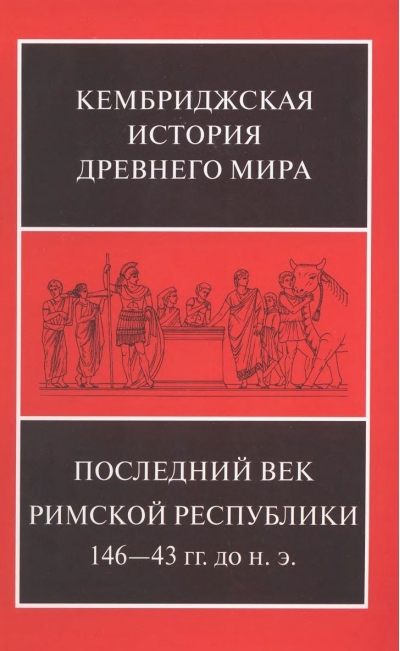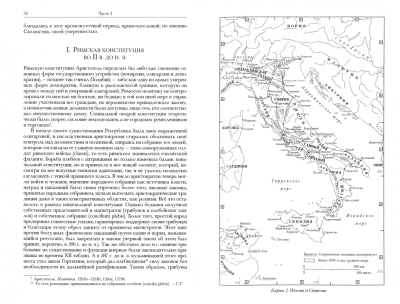The Cambridge Ancient History. Volume IX. The Last Century of the Roman Republic, 146–43 BC. In 2 half-volumes
99.99 €
The only thing available 1
This volume examines a pivotal period in the history of ancient Rome, from the destruction of Carthage to the assassination of Caesar and the creation of the second triumvirate. During these decades, Roman republican institutions gradually collapse, unable to withstand the enormous strain: after a series of wars of conquest, the Roman Empire stretches from Spain to the Black Sea, from Gaul to Africa. Rome is drawn not only into external but also into internal conflicts: first, slave revolts, then confrontations with allied Italians and, finally, devastating civil wars, in which the Roman Republic perishes and the Roman Empire is born. In this volume, the reader will see how the state fell deeper and deeper into the abyss of strife: how the tribunes Gracchi, who tried to distribute land to the plebs, fell; how the rivalry between Marius and Sulla turned into a bloody civil war and proscriptions; how Pompey and Crassus, former associates of Sulla, destroyed his regime; how Caesar broke the resistance of the Senate conservatives, and those drove him into a political trap, the way out of which was a new civil war; how Caesar, victorious in it, was struck down by the daggers of his forgiven enemies, and how Octavian, the dictator's adopted son, united with Antony, his associate, to raise the banner of vengeance. The volume presents the most diverse facets of life in the Late Republic - political and military history, civil and criminal law, the economy and social structure of society, religion and culture, and the situation in the outlying provinces and neighboring kingdoms. Much attention is paid to the life not only of the aristocracy, but also of the Roman urban plebs, who in the Late Republic became a new political force, powerful and formidable.
See also:
- All books by the publisher
- All books in the series Cambridge History of the Ancient World







